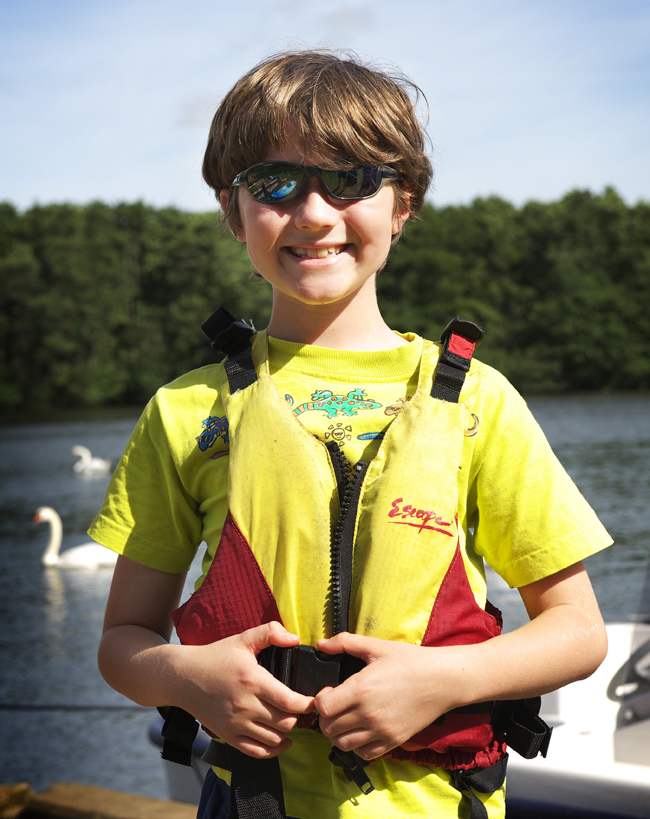Safety
The Broads can be the perfect idyllic escape and our Rangers work hard to make your time here stress-free.
But each year there are untoward incidents which could be avoided by following a few simple rules.
Please also check out our new animated videos before your visit to ensure you have a safe and enjoyable time.
Water safety
 Always wear a buoyancy aid at all times if you are canoeing/kayaking/paddleboarding, whilst on boats, while getting on and off vessels and when close to the water's edge. Wear sensible clothing and shoes for your chosen activity.
Always wear a buoyancy aid at all times if you are canoeing/kayaking/paddleboarding, whilst on boats, while getting on and off vessels and when close to the water's edge. Wear sensible clothing and shoes for your chosen activity.- If you fall in the water, try to float to live by fighting the urge to thrash around. Lean back and extend your arms and legs, gently move them around to help you float if you need to, float until you can control your breathing, then call 999 for help or swim to safety.
- Keep a close eye on children who can fall overboard without anyone noticing.
- We don't advise you to swim, as there are risks from cold water, currents and boats. See more advice about open water swimming on our swimming webpage.
- Don't jump off a moving boat and don't sit on the front deck of a day boat.
- Don't try to stop your boat by pushing with your hand or foot.
- Don't reverse your boat towards anyone in the water and do not swim near the rear of motor boats as that's where the propeller is. This will cause serious injury if it comes into contact with you.
Rules of the water
- Keep near to the right hand bank at all times.
- Speed limits in the Broads vary between 3 mph and 6 mph.
- Sailing boats have right of way. They may tack (zig-zag) across the water and you should try to pass them as they move away from you.
- In some areas specific channels may be provided for your safety meaning you must stay within that channel.
Personal safety
- Know your alcohol limits. Drink may make you more likely to fall in, and reduce your chances of surviving if you do.
- Check the height of your boat when approaching bridges and make sure you are aware of the amount of clearance. Keep your hands and heads inside the boat until you are well clear of the bridge.
- Never drink water from rivers or lakes and don't splash it onto your face to cool down.
- If you get wet, wash or shower promptly.
- Wash and thoroughly dry any wet clothing before wearing it again.
- Keep away from water which is discoloured or where you see foam, scum or algae as it may be toxic.
Knowing your location using what3words
Before exploring the park and going off the beaten track it’s important to ensure you know your route, have packed the correct equipment and checked the weather forecast. Another simple step to take before heading off is make sure you’ve downloaded the free what3words app.
what3words is an addressing system that gives every 3m square in the world a unique three word identifier. It allows you to communicate any precise location using just three words. For example ///munched.multiply.tasks is an exact spot along the popular Weaver’s Way walking route.
what3words is used by emergency services in Norfolk and Suffolk to locate callers. So if you find yourself in trouble in a hard-to-describe or unknown location you can open the app and read the three words for your current location to help 999 know exactly where you are.
Find out more about what3words: watch here
Contacts
- In an emergency call 999. The coastguard can also be contacted on this number.
- For non-urgent calls ask for Broadsbeat on 101 or phone Broads Control on 01603 756056.
- If you've had a collision go to our incident reporting page.
Port Marine Safety Code (PMSC)
The Broads Authority has to adhere to The Port Marine Safety Code (PMSC) which was published by the Government in March 2000. The Code establishes an agreed national standard for port marine safety, and formalises the duties and responsibilities for safety and environmental protection within UK ports and harbours.

